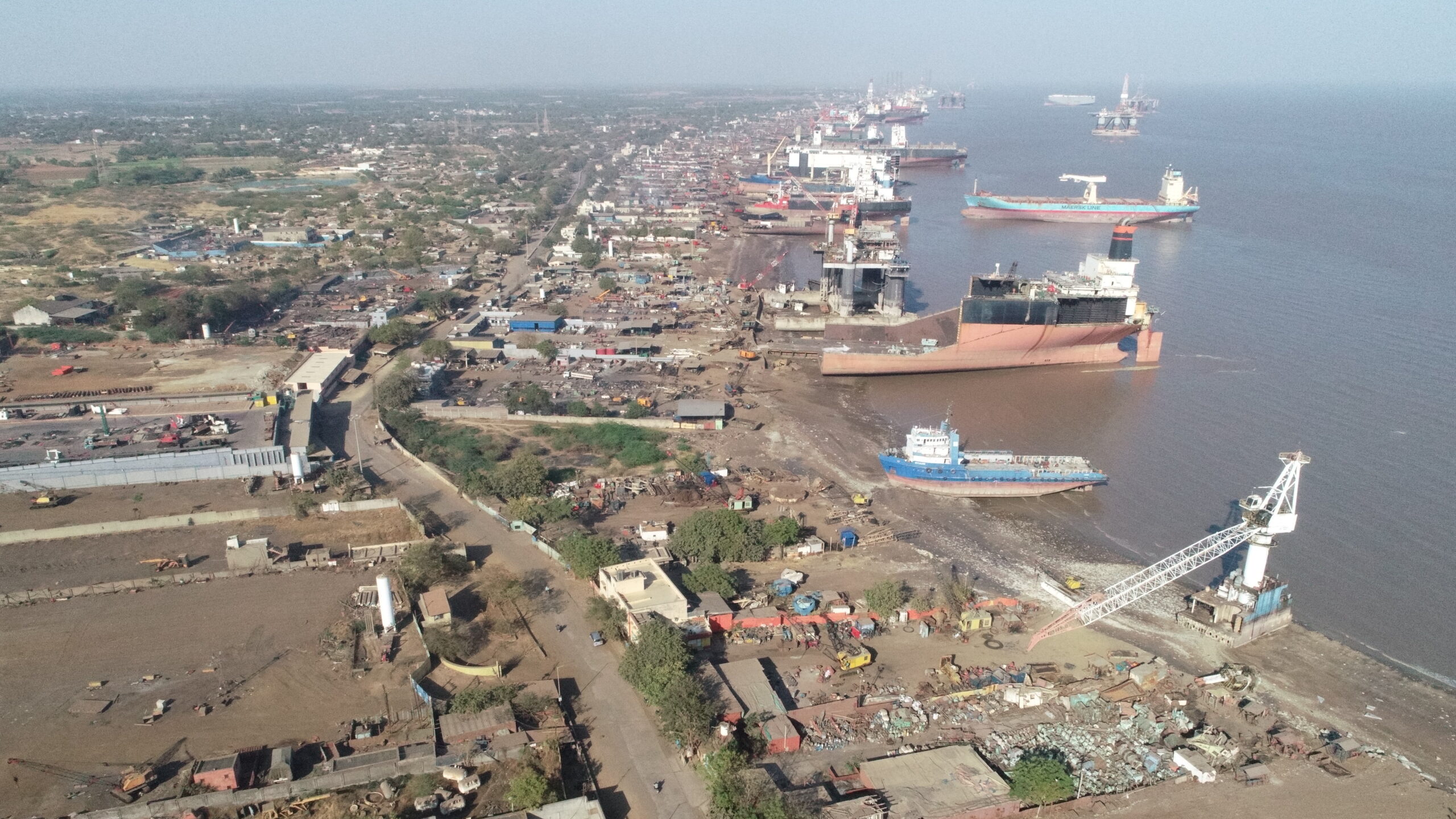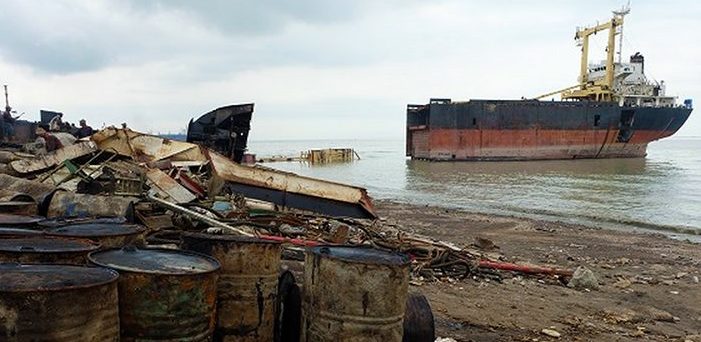EU Ship Owners Face Hurdles in Recycling Ships at Non-OECD Yards
In a recent Position Paper, the European Community Shipowners’ Associations (ECSA) raised a pressing issue in the maritime industry, calling for amendments to EU legislation regarding ship recycling. ECSA believes that European Union-based owners should recycle end-of-life vessels at facilities in India, Bangladesh, and Pakistan outside the Organisation for Economic Co-operation and Development (OECD). However, under the current legal framework, this is considered a breach of the law—even when these non-OECD facilities advance their standards and meet the criteria of the EU Ship Recycling Regulation (SRR).

ECSA’s acting Secretary General, Sotiris Raptis, and Fanny Lossy, Senior Policy Advisor on Maritime Safety, Environment, and Offshore, have explained the legal and practical challenges of the current system in a statement to Seatrade Maritime News. Despite significant investments and upgrades made by ship recycling yards in the Indian subcontinent, these yards remain off-limits to European shipping companies for two key reasons. First, none of the facilities in the region have been approved under the EU SRR framework, despite some being certified as compliant with the International Maritime Organization’s (IMO) Hong Kong Convention by major classification societies. Second, the Basel Convention ‘Ban Amendment’ prohibits the export of ‘waste’ from the EU to non-OECD countries, a rule that has been in force since December 2019.
Even if ship recycling facilities in India, Bangladesh, or Pakistan meet the stringent standards of the EU SRR, the European Commission interprets the Basel Convention as prohibiting the addition of these yards to its list of approved facilities. As a result, sending ships to these countries for recycling could be considered a violation of the Basel Convention, even when the facilities meet international safety and environmental standards.
The Legal and Economic Impasse
This regulatory impasse has created significant challenges for European shipowners. The Indian subcontinent, known in the ship recycling industry as the leading region for dismantling large vessels, is effectively cut off from European shipowners due to these legal barriers. Ship recycling in Europe is largely constrained to small facilities, which can handle only limited volumes of smaller vessels like trawlers, workboats, and tenders. This leaves no viable option for recycling larger vessels, such as Very Large Crude Carriers (VLCCs), Suezmax tankers, Capesize bulk carriers, and large container ships, which dominate global shipping.
Since China withdrew from the ship dismantling business in 2018, the options for large-scale recycling have been reduced to facilities in Aliaga, Turkey, an OECD member. However, Aliaga’s yards are currently overwhelmed, with bookings extending months ahead as they handle complex projects like the recycling of cruise ships affected by the COVID-19 pandemic. Moreover, most of the ships being dismantled in Aliaga are not controlled by European owners, which exacerbates the issue for EU-based shipping companies.
ECSA’s Call for Reform
The ECSA argues that the European Union needs to reform its ship recycling legislation to provide shipowners with adequate, sustainable, and globally competitive options. In their Position Paper, they stress the importance of encouraging further improvements in non-OECD facilities while ensuring that EU legislation does not close the door to these vital markets. ECSA’s Raptis noted to Seatrade Maritime News that the subcontinent facilities have made significant progress in recent years, with some yards substantially improving their safety and environmental standards. These advancements should be recognized by the EU, and more opportunities should be created for non-OECD facilities to gain approval under the EU SRR.
Raptis emphasized that ECSA welcomes the European Commission’s proposal to clarify the legal framework, which would allow EU-flagged ships that become waste outside the EU to be recycled at facilities in non-OECD countries—provided that these yards meet the EU SRR’s strict standards. This proposal, if implemented, would still require recycling to occur in an EU-approved facility, but it would offer an incentive for subcontinent facilities to continue upgrading their infrastructure, waste management procedures, and emergency health and safety measures.
Encouraging Compliance and Capacity Expansion
According to the ECSA, it is vital for the EU to create a comprehensive list of ship recycling facilities that meet the requirements of the SRR. This list should include facilities capable of dismantling large seagoing vessels, be geographically well-balanced to accommodate the global nature of the shipping industry and reflect the market’s capacity needs.
One of the most pressing concerns is that there are currently no alternative solutions for recycling large vessels. The common practice of ‘beaching,’ where ships are dismantled on the shore, has been heavily criticized by lobby groups, citing poor safety and environmental records in regions like India, Bangladesh, and Pakistan. However, Raptis and Lossy argue that beaching, when properly managed, can be a safe and environmentally sound process. The negative reputation of this method, they suggest, stems from inadequate oversight in some yards rather than the practice itself being inherently dangerous.
Limited European Alternatives
The lack of options within the EU further complicates matters. Although Europe has several approved ship recycling facilities, they are predominantly small, specialized yards with limited capacity. Most are equipped to handle only smaller ships, which do not represent the majority of vessels in the global fleet. Additionally, there is minimal demand for scrap steel within Europe, meaning that the steel would either need to be discarded or exported, which could negatively affect both the economics of recycling and the EU’s carbon footprint. Shipping the steel to countries that need it would generate additional emissions, undermining the environmental benefits of recycling.
The ECSA’s Position Paper concludes by calling on the European Commission to urgently develop a European list of ship recycling facilities that can accommodate the diverse needs of the global shipping industry while promoting safety, environmental sustainability, and fair competition. If the EU fails to address this issue, European shipowners may find themselves with no choice but to send their vessels to non-compliant yards, putting both their operations and the environment at risk.
The Road Ahead
As the maritime industry continues to grapple with these challenges, the ECSA is urging policymakers to take action and ensure that the EU’s ship recycling framework is fit for purpose. With large vessels having nowhere to go for responsible recycling under the current system, time is of the essence in finding a solution that aligns with legal, environmental, and economic interests.
While the European Commission’s proposal may offer a potential way forward, the industry is watching closely to see if and how these changes will be implemented. The fate of large-scale ship recycling in Europe may depend on how quickly and effectively the EU can adapt its regulations to meet the evolving needs of the global maritime sector.
Author: shipping inbox
shipping and maritime related web portal








